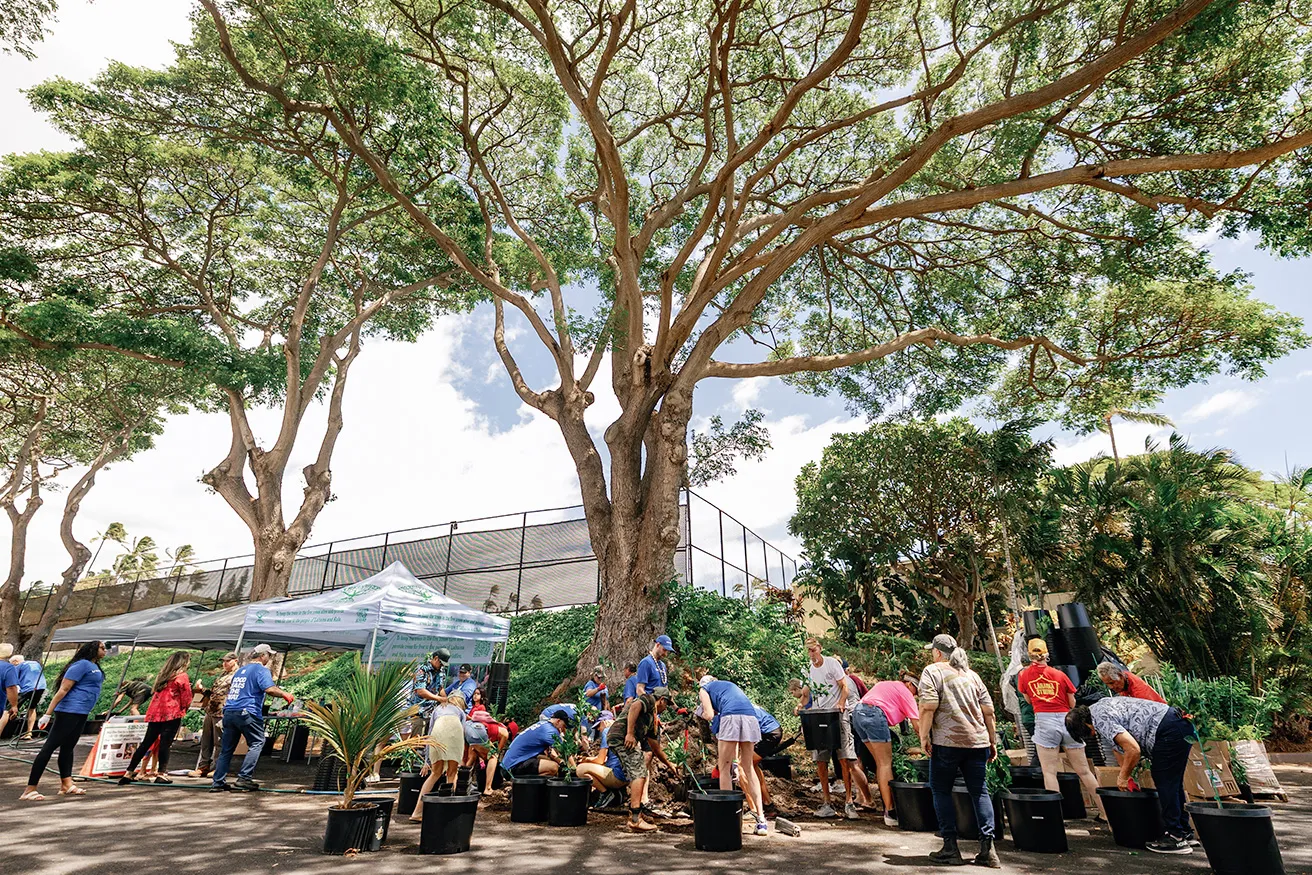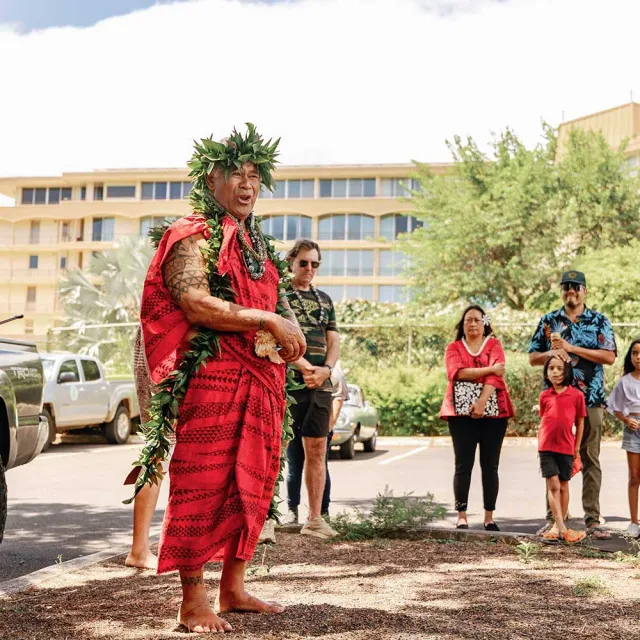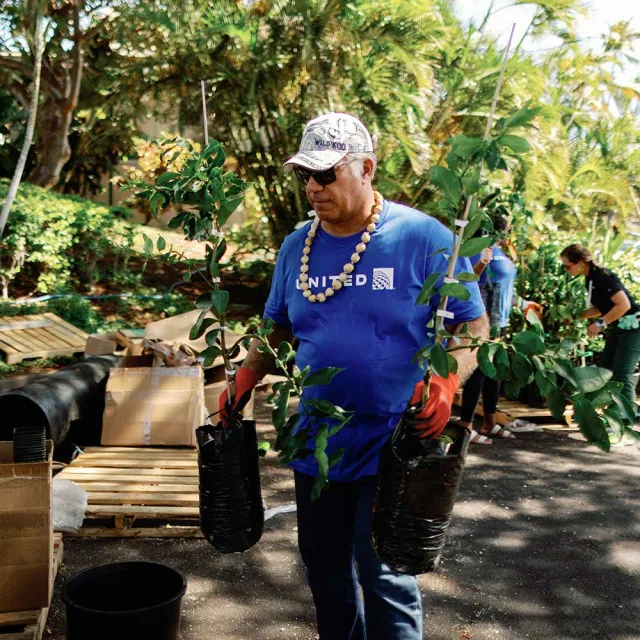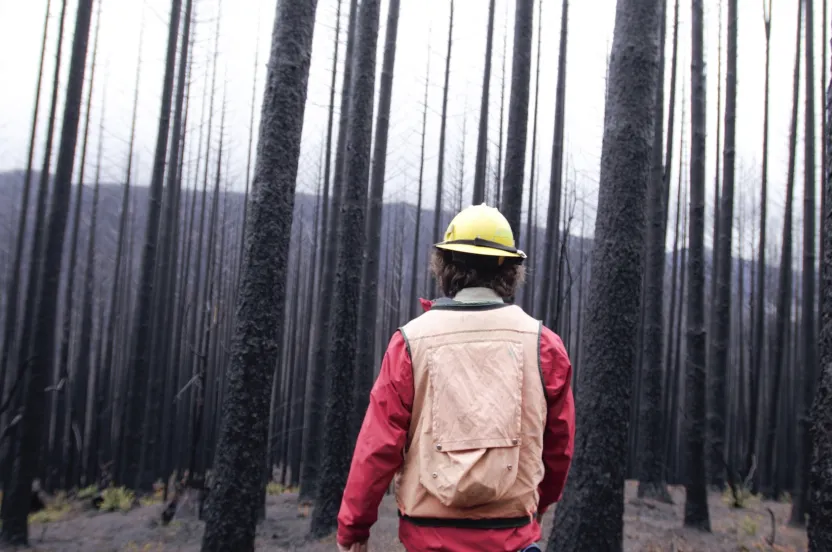Now live: The 2025 Canopy Report. Learn how Americans see trees. GET THE REPORT
Rooted in Aloha: Lahaina Gathers to Replant, Rebuild, and Remember
After Maui’s deadliest fire, Lahaina gathers to heal and rebuild — planting trees of hope and aloha.
September 9, 2025

Two years after the most devastating natural disaster in Hawaii’s history, the historic town of Lahaina on the island of Maui is beginning to regrow — one tree at a time.
On August 8, 2023, the deadliest U.S. wildfire in more than a century tore through Maui, with Lahaina suffering the greatest loss. More than 100 lives were claimed, over 2,200 structures were destroyed, and this once-vibrant coastal community was left nearly unrecognizable.
“It was like the apocalypse – people were just standing there watching the town burn,” said longtime resident Pamela Reader. “We lost everything.”
But here, where the spirit of aloha endures even in loss, a new chapter is taking root.

In partnership with local organizations like The Outdoor Circle, TreeCovery, and the Royal Lahaina Resort, the Arbor Day Foundation recently returned to Maui to host a community tree distribution. This was the first in-person event on the island since the fires, and a reflection of the Foundation’s deep commitment to helping communities recover from disasters with long-term, thoughtful reforestation.
“The tragedy of the 2023 Lahaina fires was deeply felt across the state, nation, and world,” said Myles Ritchie, programs director at The Outdoor Circle. “For us to be involved in the recovery process alongside these partners has been a humbling and gratifying experience. These trees will not only restore canopy — they’ll provide healthy food options for generations to come.”
Through TreeCovery, more than 150 families shared which species mattered most to them. The response was clear: 94% of the 583 trees distributed were fruit- and food-bearing varieties like citrus, avocado, breadfruit, and jackfruit. In a state where one in three households faces food insecurity — and where disaster can leave shelves bare in less than a week — these trees represent more than shade. They’re sustenance. They’re security. And in Hawaiian culture, they’re community.
“This is a poignant and reflective day," said Winston Welch, executive director of The Outdoor Circle. "But it's also a hopeful one. A day filled with aloha — for each other, and for the place we call home.”
Held on the second anniversary of the fires, the event reflected both the grief and the resilience of Lahaina. While many families have yet to rebuild, the desire to reconnect with the land, and with each other, was strong. Because recovery doesn’t follow a straight line, the distribution was designed as a hybrid: some residents took trees home immediately, while others tagged larger trees to be cared for at Lahaina’s new tree hub at the Royal Lahaina Resort until they are ready. It’s a unique and thoughtful model for what community fire recovery can look like, meeting people where they are in the healing process.

Rebuilding with purpose
Events like this reflect the Arbor Day Foundation’s growing commitment to long-term disaster recovery in communities across the world. In 2024 alone, the Foundation helped plant and distribute more than 1.1 million trees across 63 cities recovering from disasters.
Recovery isn’t just about putting trees in the ground — it’s about doing it the right way, with the right partners, when the land and people are ready.
“Trees help heal the land and the people. They symbolize rebirth — and they’re just one small way we can support the rebuilding process,” said Ritchie.
Trees can’t replace what was lost in Lahaina. But they can help restore the land, provide nourishment, and symbolize the resilience of a community determined to rise again.
And like healing, planting takes time.
It takes partnership.
It takes all of us.



